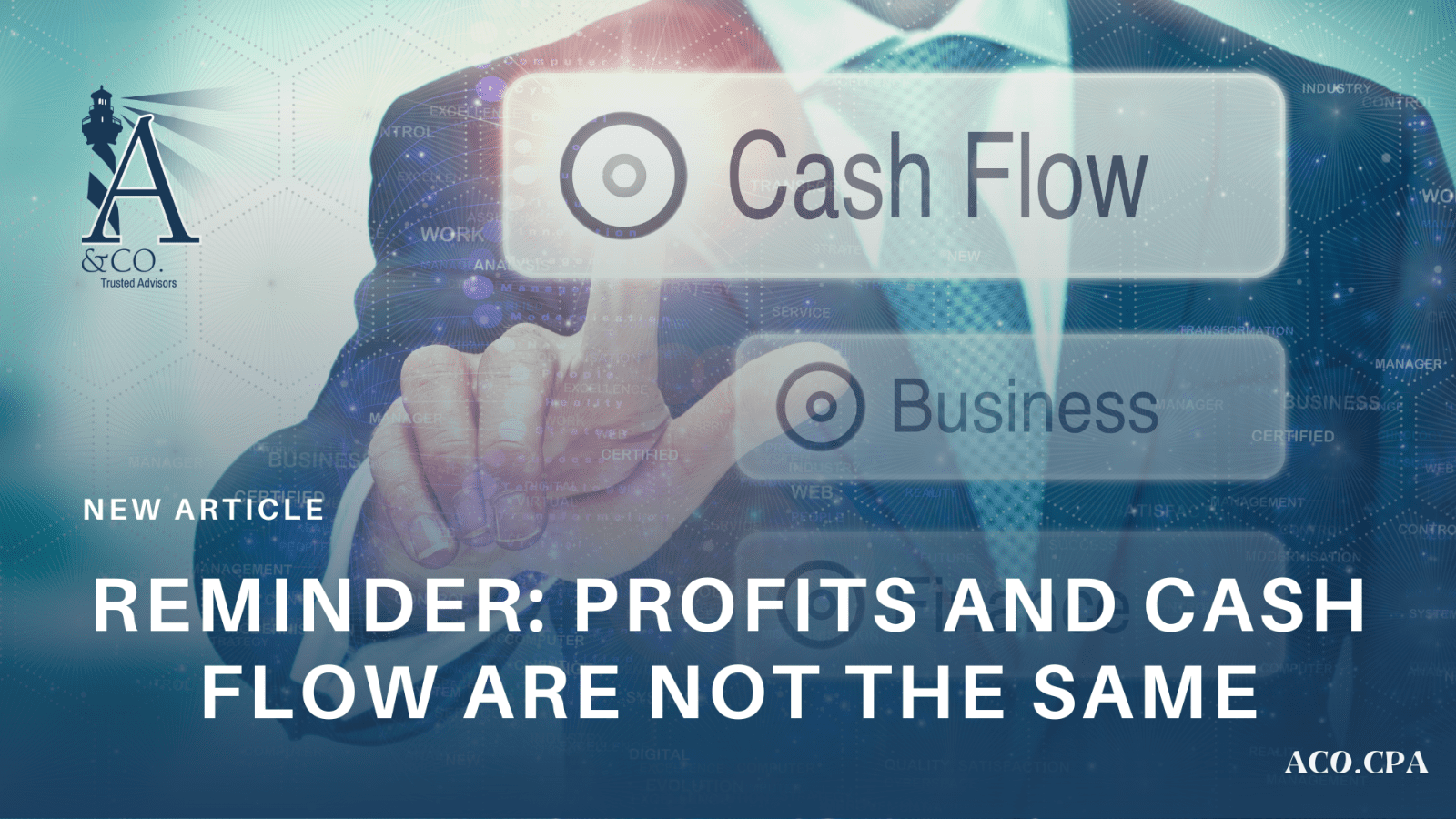Many profitable businesses experience cash flow shortages, especially during periods of rapid growth. Business owners may find themselves puzzled by owing taxes while struggling to cover everyday expenses. The confusion often stems from the fundamental differences between profits and cash flow.
Understanding Operating Activities
Profits are closely linked to taxable income and are reported at the bottom of your company’s income statement. They are calculated by subtracting the cost of goods sold and other operating expenses from revenue earned during the accounting period. Under U.S. Generally Accepted Accounting Principles (GAAP), businesses must “match” costs and expenses to the period in which revenue is recognized.
This accrual-basis accounting method means that profits don’t always align with cash inflows and outflows. For instance, retailers and manufacturers can’t deduct unsold inventory, even if they’ve already paid for it or financed it. The cost of goods sold only appears on the income statement when inventory is sold or used, leaving the inventory account to hold cash outflows that haven’t yet been expensed.
Other working capital accounts, such as accounts receivable, accrued expenses, and trade payables, reflect timing differences between cash inflows and outflows. As your business grows and anticipates more sales, you invest more in working capital, which can temporarily drain cash reserves.
On the flip side, more established businesses may experience the opposite situation, where they generate significant cash despite slower growth and modest profits, turning into “cash cows.”
Considering Financing and Investing Activities
The income statement only tells part of the story. Depreciation and amortization are noncash expenses that lower profits, while other items—such as changes in fixed assets, bank loans, and owner contributions—affect cash on hand but are excluded from the income statement.
For example, imagine your company took advantage of the expanded Section 179 deduction in 2023 by purchasing new equipment. You deducted the entire purchase price from 2023 profits, but since the purchase was financed through debt, actual cash outflows were minimal. In 2024, you’ll begin repaying the loan, which will reduce cash in your checking account, but your profits will only be affected by the interest on the loan, not the principal repayments.
Additionally, since there is no remaining basis in the 2023 purchases, you won’t have depreciation deductions in 2024, which could artificially inflate your profits without a matching increase in cash flow.
Let Us Help You Manage Cash Flow
When managing your business’s finances, it’s critical to look beyond just profits to avoid potential cash flow challenges. Your team at Accavallo & Company LLC can help you develop strategies to improve your cash flow management and navigate the complexities of growth. Contact us today at 203 925-9600 or [email protected] to discuss how to better align your profits and cash flow.



